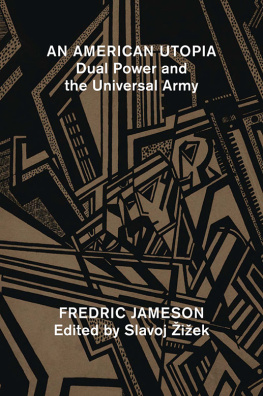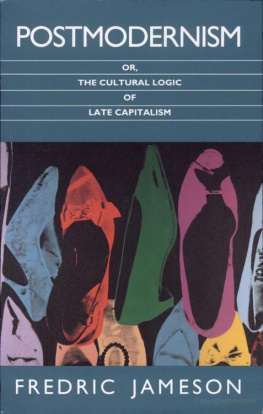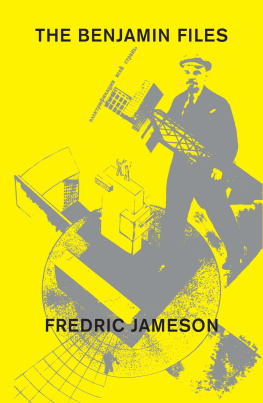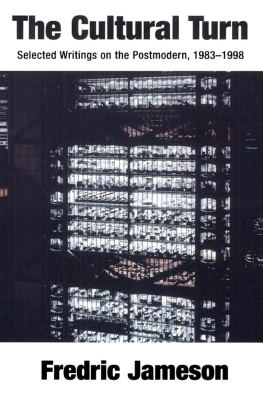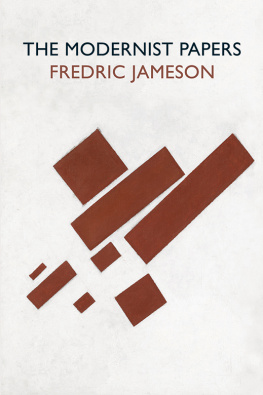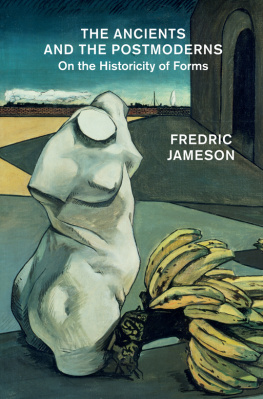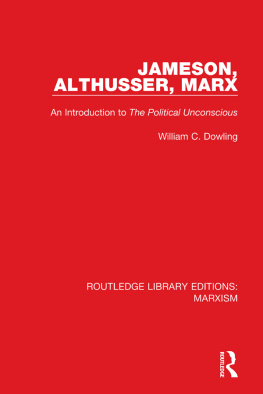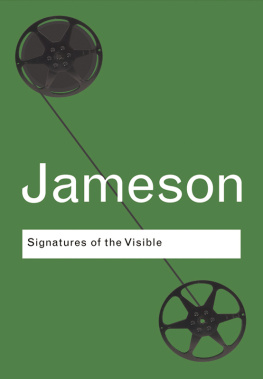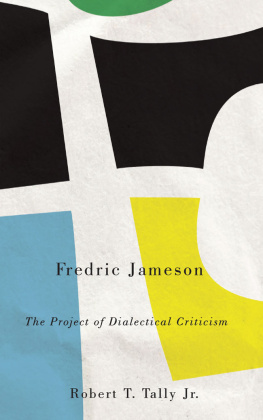This volume brings together Jamesons pathbreaking text, especially revised for this edition, with an original short story by Kim Stanley Robinson that plays upon some of Jamesons motifs, philosophers and political and cultural analysts reactions to Jameson, and Jamesons short epilogue. Although the reactions are often critical toward Jameson, they all agree on the need to radically rethink the leftist project.
Many leftists (and especially leftists) will definitely be appalled at what they encounter in this volumethere will be blood, to quote the title of a well-known film. But what if one has to spill such (ideological) blood to give the left another chance?
We have seen a marked diminution in the production of new utopias over the last decades (along with an overwhelming increase in all manner of conceivable dystopias, most of which look monotonously alike). Can these developments be dated or periodized in some way? I have always been tempted to mark the end of utopian production with Ernest Callenbachs great Ecotopia of 1975, a work whose most serious flaw, from todays standpoint, is the absence of electronic or informational technology. Maybe the utopian form, then, cannot integrate such technology, or maybe on the other hand the Internet itself has soaked up many of the available utopian fantasy impulses. Or was it the triumph of Reagan-Thatcher financial deregulation in the late 1970s and early 1980s that spelled the end of utopian thinking, at the same time that it seemed to seal the victory of late capitalism over all imaginable, let alone practicable, alternatives?
In fact, the possibilities for utopian thinking were always bound up with the fortunes of a more general concern, not to say obsession, with power. The meditation on power was itself an ambiguous project. In the 1960s this project was a utopian one: it was a question of thinking and reimagining societies without power, particularly in the form of societies before power: here Lvi-Strausss revival of Rousseau gave rise to the utopian visions of early Baudrillard, of Marshall Sahlins in his Stone Age Economics, of Pierre Clastres, and of that supreme utopian vision, The Forest People by Colin Turnbull.
Yet at a certain point the inquiry into societies without power begins to turn into an inquiry into the emergence of power in early human societies; this theoretical problem slowly links up with practical politics, in the form of an anti-institutional and anarchist preponderance on the left whose causes are clearly multiple. They range from the failure of May 68 and the disillusionment with the old Communist Parties to the disillusionment with African decolonization, not to speak of the sorry fate of Third Worldism and of the triumphant wars of national liberation, from Algeria to Vietnam. At some such general point the reflection on power acquires its ideological foundations in the work of Michel Foucault and others, reinforced by revelations about the gulag, and becomes a dystopian obsession, a quasi-paranoid fear of any form of political or social organizationwhether in the formation of political parties of one kind or another or in speculation about the construction of future societies radically different from this oneas well as a desperate brandishing of the terminologies of freedom and democracy by leftists, who ought to know better and to appreciate the quasi-ownership of this language by Western democracies or, in other words, by late capitalism. At any rate, these developments in the field of utopias seemed to go hand in hand with the virtual dissolution of practical politics of all kinds on the left. This is the situation in which I want to propose a project about which I cant be sure whether I am proposing a political program or a utopian vision, neither of which, according to me, ought to be possible any longer.
Why not? Well, the left once had a political program called revolution. No one seems to believe in it any longer, partly because the agency supposed to bring it about has disappeared, partly because the system it was supposed to replace has become too omnipresent to begin to imagine replacing it, and partly because the very language associated with revolution has become as old-fashioned and archaic as that of the Founding Fathers. It is easier, someone once said, to imagine the end of the world than the end of capitalism: and with that the idea of a revolution overthrowing capitalism seems to have vanished. Well, lets be fair: the left did have another political strategy, whatever you think about it, and that was reformismsometimes, in contradistinction to revolutionary communism, called socialism. But Im afraid no one believes in that any longer either.
The reformist or social-democratic parties are in a complete shambles: they have no programs of any distinction, save perhaps to regulate capitalism so it does no really catastrophic or irreparable damage. There is omnipresent corruption both in these parties and in the system at large, which is, in any case, too enormous and too complex to be susceptible to any decisive tinkerings which might improve it, let alone lead to something you could truly call systemic change. Social democracy is in our time irretrievably bankrupt, and communism seems dead. Thus, it would seem, neither of Gramscis celebrated alternativesthe war of maneuver and the war of positionseem any longer theoretically or practically adequate to the present situation.
Fortunately, there exists a third kind of transition out of capitalism which is less often acknowledged, let alone discussed, and that is what was historically called dual power. Indeed, dual power will be my political program and will lead to my utopian proposal.

